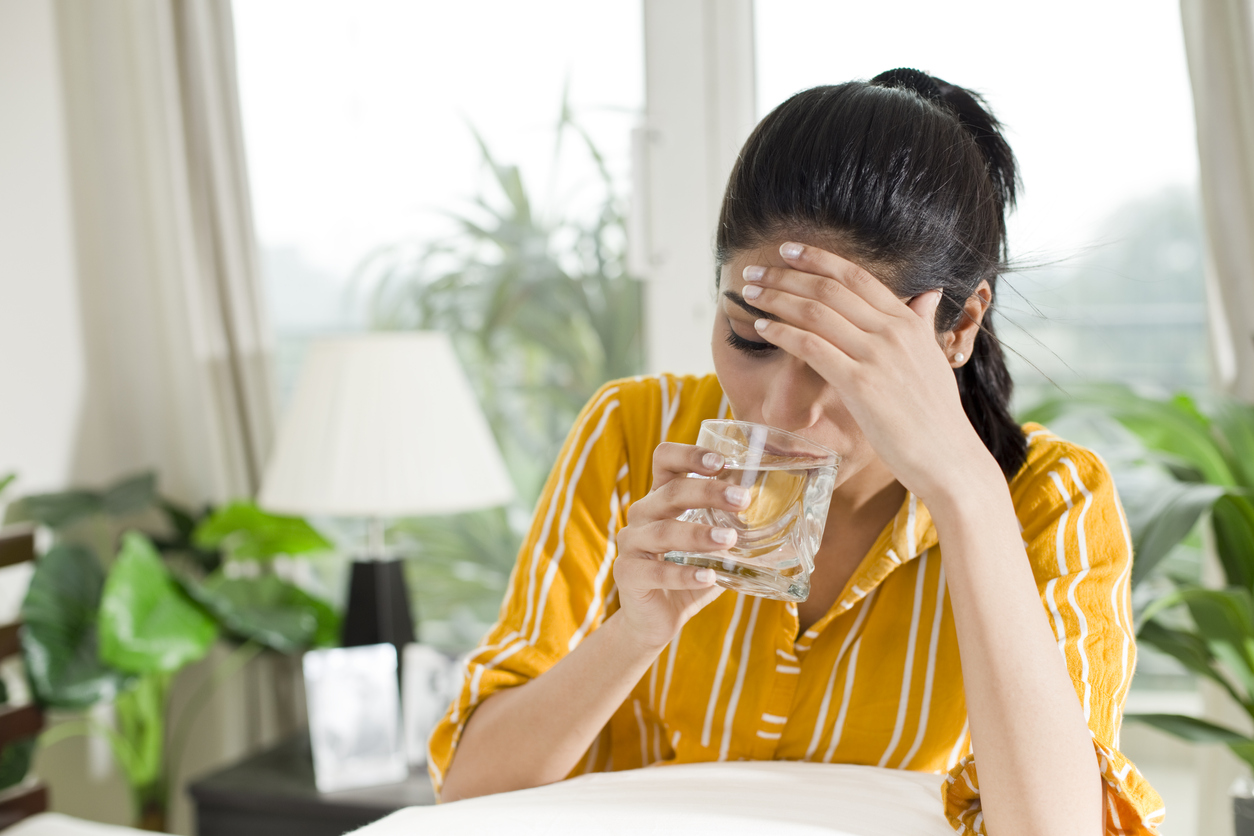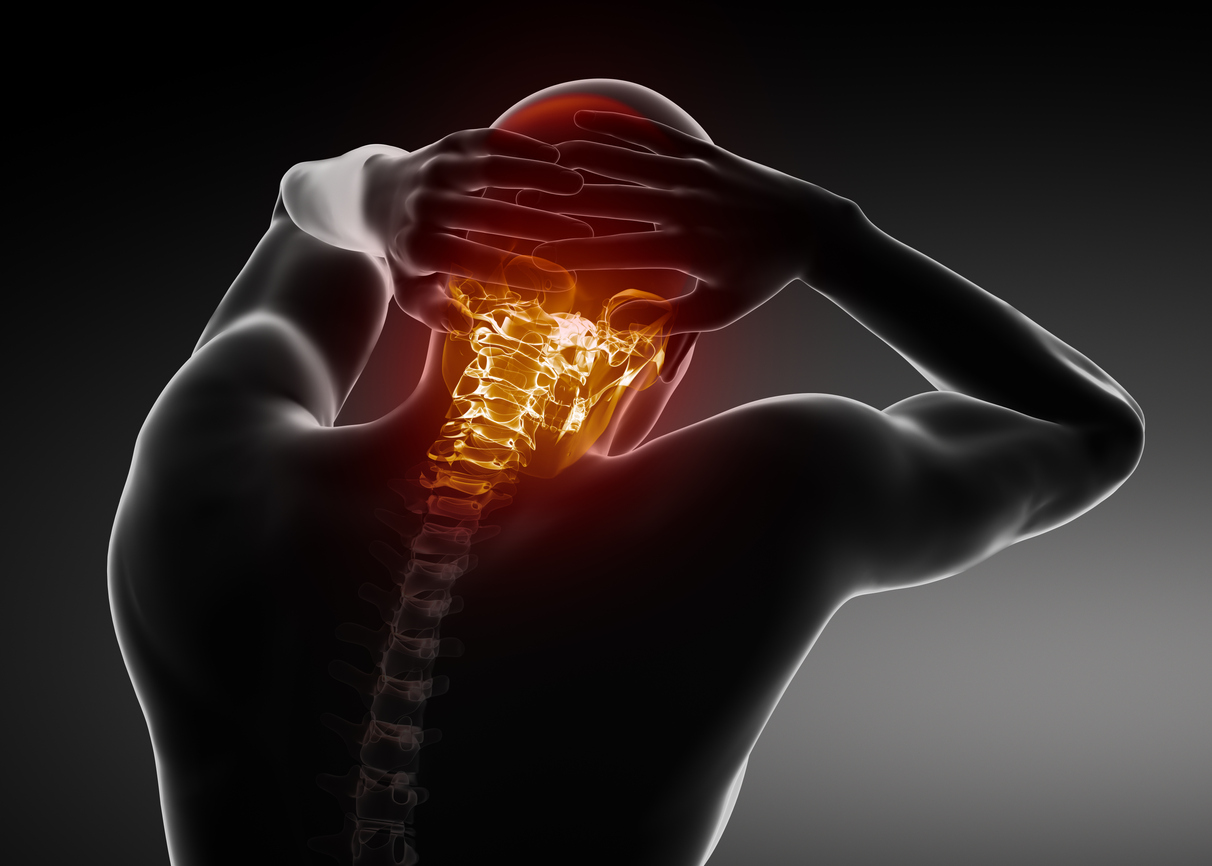What Is the Cause of Headache at the Back of the Head
Having a headache in the back of your head is usually not a sign of a serious illness and tends to be caused by a tension headache, migraine or poor posture.
Occasionally, however, a headache in this part of your head can be a sign of something more serious and may be caused by an underlying problem, which may need further investigation.
When to get medical help for a headache on the back of your head
You should get medical help immediately if you have a headache on the top of your head — or in another location on your head — and you experience any of the following:
- the headache changes, gets worse quickly or is severe
- the headache doesn't go away
- you've recently injured your head
- you coughed, sneezed or moved suddenly or quickly and this triggered your headache
- you have a weakened immune system, for example if you're undergoing chemotherapy
- you're pregnant
- you may have been exposed to carbon monoxide
- you think you have a migraine but are worried by other symptoms
You should also get immediate medical help if you have a headache and:
- you have a high temperature (fever)
- you've had a fit (seizure)
- you feel confused or dizzy
- any of your limbs feel weak
- your eyes are sensitive to light
- you've noticed changes in your personality, speech or vision
- you have a stiff neck
- you're being or have been sick (vomiting)
If none of the above applies, your headache may be caused by one of the reasons below.
Common causes of pain in the back of your head
Tension headache
Most headaches are primary headaches. This means they have no specific cause and aren't related to a particular illness, injury or condition. The most common example of a primary headache is a tension headache.
A tension headache can cause pain in the back of your head as well as at the front, sides and back of your neck.
With a tension headache the pain is typically mild, dull (not throbbing) and may come on more slowly.
Tension headaches tend to be caused by stress and tension in the scalp and neck muscles. This can be due to emotional or physical stress, anxiety or depression.
If these muscles are tight and contract as a result of stress, this can cause a build-up of pressure which prompts the nerves in this area to send pain signals to the brain. The result is feelings of pressure and pain in the back parts of your head, or in other parts of the head.
Many other things can cause tension headaches, including not drinking enough water and having long gaps between meals.
But you can usually ease symptoms and treat them yourself at home. To do this, try:
- drinking plenty of water — dehydration can make a headache worse
- doing exercises to relax the muscles in your head, neck, shoulders and back — yoga or pilates may help, or swimming, as this can loosen the muscles in your back and shoulders
- massaging your neck and upper back -- this can help relax the muscles in this area and is ideal if you're not able to exercise, for example if you have an injury
A doctor may advise taking painkillers such as paracetamol. Speak to a pharmacist or doctor for guidance on whether to use these medications, and how to get and use them.

Migraine
Migraines tend to be more painful than tension headaches. While you typically get pain on 1 side of your head, it can affect both sides of your head, the back of your head and your neck too.
You may sometimes get other symptoms in addition to head pain, including temperature flushes or feeling and being sick.
What causes migraines is not fully understood. Some experts believe it may be due to changes in brain cell activity that cause your blood vessels to contract, building pressure in this area — resulting in a migraine.
It's not clear what causes these changes, but it may be genetic (predisposed) -- or your genes may make it more likely for this activity to happen, especially when you're exposed to a potential trigger.
In women, migraines can strike around their period, a time when hormone levels change. They can also run in families.
If you're prone to migraines, it's important to find a way to treat them at home to help minimise pain and discomfort. You should stay hydrated, and get plenty of rest. For some people, lying down in a dark room and taking painkillers helps.
If you need to take painkillers, speak to a pharmacist or doctor for help on how to get these medications and use them.
Poor posture
If you spend a lot of your time sitting at a computer, or have to sit in the same position for hours at a time as part of your job, then your posture may get worse.
Your posture is the way you sit and stand and if your muscles get tired from sitting in the same position for too long, this can cause you to slouch.
Slouching can build pressure in your neck and shoulder muscles, leading to tension in this area. This can bring on a tension-type headache that you may feel in the back of your head.
If you think bad posture may be to blame, there are things you can do to help improve your posture and reduce your risk of headaches, such as:
- sitting upright in a chair while using a computer
- sitting in a chair that supports your lower back
- taking regular breaks to help reduce stress and strain on your back muscles
These posture tips for laptops users may also be useful.
You shouldn't need to see a doctor for a tension headache, but try to ease tension in the area by doing stretches and exercises, and remember to stay hydrated.

Less common causes of pain in the back of your head
Chronic tension headache
If you get a tension headache 15 times or more a month over a 3-month period, this is described as chronic.
It's not clear why this type of headache may become chronic, but taking painkillers regularly may be a cause. This if often referred to as a medication-overuse headache, where you get into a pattern of taking painkillers to treat a tension or migraine headache. As your body becomes used to painkillers you can develop a withdrawal headache if you don't take another dose.
This becomes a cycle of getting withdrawal headaches and needing to take painkillers to help you manage the pain of a headache. If this happens as a result of recurring tension headaches, it can become chronic. If you think this may be the cause, you should see a doctor for guidance.
A chronic tension headache can be more painful than one that strikes occasionally, but it may still affect you in the back of your head.
If you get headaches repeatedly — 2 or more times a week — you should see a doctor, so they can help you find the best treatment.
Arthritis headache
Inflammation of the joints (arthritis) is common, and if certain bones in your upper spine (vertebrae) are affected by arthritis it can cause a headache.
This is because any swelling builds pressure in the neck and the nerves in the scalp may also be affected by this. This can cause pain, primarily, in the back of your neck but also on the back of your head.
If you have arthritis affecting this area, or suspect you do, see a doctor. They will be able to help you treat the underlying cause.
However, you may be able to ease symptoms by:
- massaging the neck, upper body and back
- doing gentle exercise, like slow swimming
- applying a warm compress to the back of your head and neck, as heat can help to relax your muscles and loosen your joints

Occipital neuralgia
This condition occurs when the nerves (occipital nerves) which run from the neck to the back of the head become inflamed. It can be caused by an injury, by arthritis or when your muscles tighten from stress or tension, and pinch the nerves.
You may feel pain in the back of your head and neck, or behind the ears, and it's usually described as being a throbbing or shooting pain — more similar to a migraine or cluster headache than a tension headache.
However, migraines tend to come with other symptoms, so if you get shooting pains at the back of your neck or scalp and you don't have other symptoms, see a doctor. They may be able to identify the underlying cause and help you treat it to reduce your risk of further headaches.
When to see a doctor
You should see a doctor if your headache is severe or keeps coming back. Also pay attention to any other symptoms, such as numbness in your limbs.
If your scalp hurts and is tender, your jaw is sore or you have blurred vision, you should seek medical help immediately.
You should also seek medical help quickly if you have a headache and:
- you've lost your vision
- you have a high temperature (fever)
- you find it hard to speak
- you find it hard to remember things
- the whites of your eye has turned red
Key points
- a headache in the back of your head is usually nothing to worry about and is likely caused by a tension headache or migraine
- poor posture can also cause a headache in this region
- less common causes include arthritis and other inflammatory conditions
- a headache in the back of your head can have a primary and secondary cause
- if your headache is severe, keeps coming back or is accompanied by symptoms you should see a doctor
What Is the Cause of Headache at the Back of the Head
Source: https://www.livehealthily.com/headaches/why-do-i-have-a-headache-in-the-back-of-my-head
Belum ada Komentar untuk "What Is the Cause of Headache at the Back of the Head"
Posting Komentar